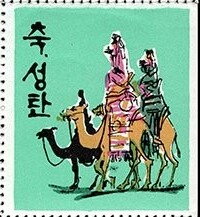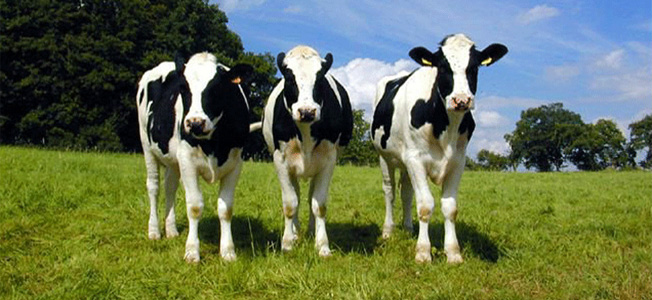Stamp: Three Wise men (Cinderellas 1970)
Three Wise men (Cinderellas 1970)
01 January (Cinderellas ) within release U.S.A. : Korean Relief goes into circulation Stamp Three Wise men face value None No Face Value
| Stamp Three Wise men in catalogues | |
|---|---|
| Colnect codes: | Col: US-KOR 1970-1/15 |
Stamp is square format.
Korean Relief Inc sold christmas seals from 1966 to 1971 to support Catholic Orphanages in South Korea.Also in the issue U.S.A. : Korean Relief:
- Stamp - Angel face value None;
- Stamp - Holy Family face value None;
- Full Pane - Korean Reliief 1970 Biblical Scenes face value None;
- Stamp - Shepherd face value None;
- Stamp - Shepherds face value None;
- Stamp - Three Wise men face value None;
- Stamp - To From Angel face value None;
- Stamp - To From Children and Infant Jesus face value None;
- Stamp - To From Holy Couple face value None;
- Stamp - To From Holy Family face value None;
- Stamp - To From holy Family face value None;
- Stamp - To From holy Family face value None;
- Stamp - To From holy Family face value None;
- Stamp - To From Temple face value None;
- Stamp - To From Three Wise men face value None;
- Stamp - To From Three Wise men face value None;
|
Data entry completed
50%
|
|
|---|---|
| Stamp Three Wise men in digits | |
| Country: | Cinderellas |
| Date: | 1970-01-01 |
| Emission: | Cinderella |
| Format: | Stamp |
| Face Value: | None No Face Value |
Stamp Three Wise men it reflects the thematic directions:
Goliath (/ɡəˈlaɪəθ/ gə-LY-əth) was a Philistine giant in the Book of Samuel. Descriptions of Goliath's immense stature vary among biblical sources, with texts describing him as either 6 ft 9 in (2.06 m) or 9 ft 9 in (2.97 m) tall. According to the text, Goliath issued a challenge to the Israelites, daring them to send forth a champion to engage him in single combat; he was ultimately defeated by the young shepherd David, employing a sling and stone as a weapon. The narrative signified King Saul's unfitness to rule, as Saul himself should have fought for the Kingdom of Israel
Cattle (Bos taurus) are large, domesticated, bovid ungulates widely kept as livestock. They are prominent modern members of the subfamily Bovinae and the most widespread species of the genus Bos. Mature female cattle are called cows and mature male cattle are bulls. Young female cattle are called heifers, young male cattle are oxen or bullocks, and castrated male cattle are known as steers.
help, especially in the form of money, given freely to people who are in need, for example because they are ill, poor, or have no home, and organizations that provide this help: She does a lot of work for charity.
Christmas or Christmas Day (Old English: Crīstesmæsse, meaning "Christ's Mass") is an annual festival commemorating the birth of Jesus Christ, observed most commonly on December 25 as a religious and cultural celebration among billions of people around the world. A feast central to the Christian liturgical year, it is prepared for by the season of Advent or the Nativity Fast and initiates the season of Christmastide, which historically in the West lasts twelve days and culminates on Twelfth Night; in some traditions, Christmastide includes an Octave. The traditional Christmas narrative, the Nativity of Jesus, delineated in the New Testament says that Jesus was born in Bethlehem, in accordance with messianic prophecies; when Joseph and Mary arrived in the city, the inn had no room and so they were offered a stable where the Christ Child was soon born, with angels proclaiming this news to shepherds who then disseminated the message furthermore. Christmas Day is a public holiday in many of the world's nations, is celebrated religiously by the vast majority of Christians, as well as culturally by a number of non-Christian people, and is an integral part of the holiday season, while some Christian groups reject the celebration. In several countries, celebrating Christmas Eve on December 24 has the main focus rather than December 25, with gift-giving and sharing a traditional meal with the family.
Sheep (pl.: sheep) or domestic sheep (Ovis aries) are a domesticated, ruminant mammal typically kept as livestock. Although the term sheep can apply to other species in the genus Ovis, in everyday usage it almost always refers to domesticated sheep. Like all ruminants, sheep are members of the order Artiodactyla, the even-toed ungulates. Numbering a little over one billion, domestic sheep are also the most numerous species of sheep. An adult female is referred to as a ewe (/juː/ yoo), an intact male as a ram, occasionally a tup, a castrated male as a wether, and a young sheep as a lamb.





